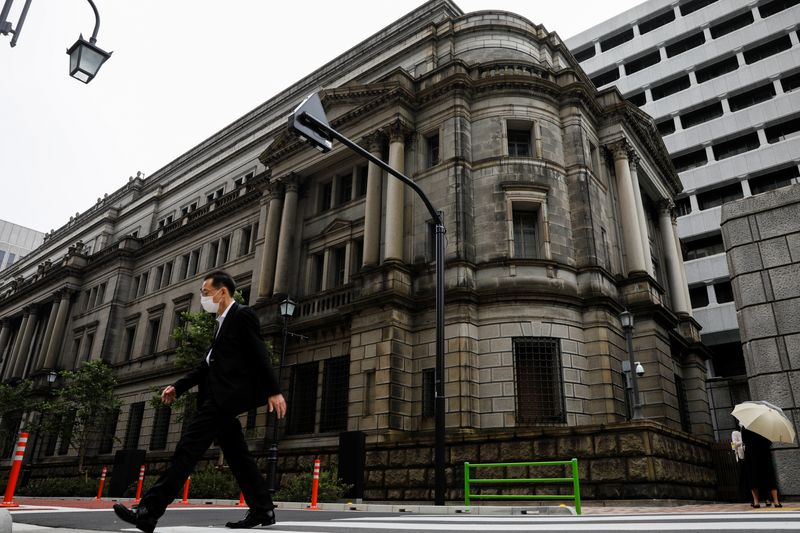By Leika Kihara and Tetsushi Kajimoto
TOKYO (Reuters) - The Bank of Japan kept monetary settings steady on Tuesday and stuck to its view that the economy will gradually recover from the coronavirus pandemic, signalling that it has taken enough steps to support growth for now.
However, it increased the nominal size of its lending packages for cash-strapped firms to $1 trillion from about $700 billion announced last month.
While the BOJ remains focused on steps to ease corporate funding strains, Governor Haruhiko Kuroda may offer hints on how it will deal with longer-term issues such as how to fire up growth and inflation when the pandemic begins to subside.
"Given markets have calmed down and the economy appears to be bottoming out, there's no reason for the BOJ to take action anytime soon," said Hiroshi Shiraishi, senior economist at BNP Paribas (OTC:BNPQY) Securities.
"Fiscal policy will play a main role in responding to the virus fallout, so the central bank will continue to indirectly help the government by keeping borrowing costs low," he said.
In a widely expected move, the BOJ maintained its yield curve control targets at -0.1% for short-term interest rates and 0% for long-term rates.
The central bank also made no major changes to its programmes to ease corporate funding strains, including a lending facility aimed at channeling funds to firms.
Due to the way it is designed, the amount of money to be pumped out via the programmes will reach 110 trillion yen ($1 trillion) if more loans are taken out via government schemes, the central bank said.
That was larger than an estimate of 75 trillion yen made in May, as the government expanded the range of eligible loans under a second stimulus package.
The BOJ is among a host of major central banks that have pumped trillions of dollars into financial systems to support businesses hit by the coronavirus pandemic.
Finance Minister Taro Aso praised the BOJ's money printing, telling reporters on Tuesday the central bank's lending facilities "undoubtedly led to an increase in money supply."
Markets have widely expected the BOJ to stand pat after it expanded stimulus in March and April, mainly by boosting asset purchases and creating lending facilities to channel money to companies hit by slumping sales from the pandemic.
Prime Minister Shinzo Abe declared a state of emergency in April, requesting businesses to close and citizens to stay home, a move that dealt a severe blow to consumption.
The emergency was lifted in late May, but analysts expect the economy to have contracted more than an annualised 20% in the current quarter, after having slipped into recession.
The BOJ maintained its guarded optimism on the outlook and stressed its readiness to ease policy again if needed.
"Although economic activity will gradually resume, Japan's economy will remain in a severe state for the time being," the central bank said in a statement.
"Once the impact of the pandemic subsides, the economy is likely to improve" due to an expected rebound in consumption and output, as well as the boost from government stimulus, it said.
